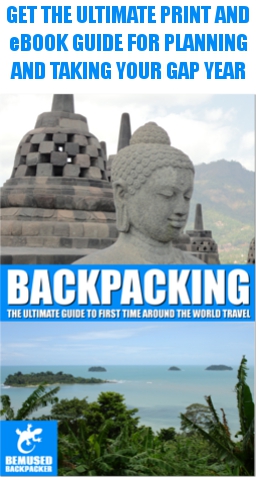
Egypt has been a package tour destination since at least the Roman era, probably even long before that, and it is easy to see why. With the only remaining ancient wonder of the world and the remains of another, as well as the ruins of some of history’s greatest and most significant monuments, Egypt is a travellers dream destination.
Egypt is extremely well set up for tourists, with tours and transport ready and waiting to herd busloads of package tourists from Sharm or Hurghada and ply them with all inclusive cruises and organised activities. There is no end to the choice of tours to discover ancient sites and archaeological ruins, adventure activities in the desert and day trips to discover world wonders. Egypt is one of the best travel hotspots in the world. Egypts problem is that decades of politics and problems with terrorism has left many package tourists afraid to visit and the tourism industry hit hard. However, for the intrepid travellers willing to ignore the scare stories Egypt is waiting and willing to welcome you with open arms. Egypt is extremely easy and very cheap to travel through independently, and if you are even the slightest bit adventurous, you can discover sides of Egypt that most tourists will never see.
Culture And Etiquette.
Egypt is a predominantly Muslim country, and although in general Egyptians are very moderate and used to Western tourists, remember that it is still quite a conservative country and you should respect that in both your dress and attitude. Covering up in long pants and tops that cover the shoulder is more than adequate, smart too in the Egyptian sun, shawls are excellent accessories for covering up any extra skin if you visit any religious sites. And no, the bikini tops and hotpants favoured by many tourist sheep straight off the cruise ships do not count as appropriate.
One piece of Egyptian culture that surprises many Westerners is the notion of baksheesh. This is essentially a little tip for any type of service rendered from showing you the way somewhere or opening a door for you, but it is not tipping in the way Westerners view it, remember this is simply an aspect of their daily culture. The value is absolutely minimal by Western standards, we are talking 20 or 50 pence tops. This can add up over time of course but given the general low cost of everything else, especially if you are good at haggling, it isn’t all that much in the grand scheme of things.

What You Need To Know.
Visas.
Most countries require a visa to enter Egypt, including those of the UK, Europe, USA, Australia and New Zealand amongst others. The easiest way to get a visa is online before you arrive throgh the official Egyptian government portal. You can get a single entry e visa for $25 USD or a multiple entry e visa for $60 USD. Both are valid for 3 months.
Alternatively you can get a visa on arrival which costs $25 USD and lasts for a month. On arrival at Cairo airport, the visa Kiosk is immediately on your left hand side before you reach the immigration counters. You can conveniently pay in either Egyptian pounds (if you have any), British Sterling, Euro or US Dollars.
There is no need to buy a visa from an agent at an extortionate rate. It is very easy to do yourself.
When travelling throughout Egypt it is still advised to keep your passport on you at all times, more so if you are heading off the beaten track or driving, as this will not only be required to check into hotels but you also may be asked to produce it at security checkpoints. Odds are you won’t encounter any need for it but it never hurts to be prepared.
Health.
It is always recommended that you are up to date with any routine vaccinations before you visit any country and Egypt is no exception. In addition Typhoid and Hepatitis A vaccinations are also recommended.
Diptheria, Tuberculosis, Hepatitis B and Rabies are sometimes recommended but only for at risk groups or if you are spending an extended amount of time in the country, speak to your GP or specialist nurse to determine whether you are within one of these groups.
No other vaccinations are required, but if you arrive into Egypt from an area infected with yellow fever then proof of vaccination is necessary.
The is a low risk of Malaria in some remote parts of Egypt, but is so low prophylaxis is generally not recommended unless you are staying in remote areas for long periods of time. Mosquito avoidance measures such as nets, coils and DEET spray are always highly recommended.
Hospitals and clinics are generally of a high standard in Cairo and Alexandria but may be hard to find outside of the main towns and cities. Pharmacies however are common throughout Egypt and often have a doctor on the premises too, these are generally good ports of call for minor complaints. Cruise ships, resorts and anywhere that caters to large volumes of tourists such as high end hotels generally have access to medical staff too and are a good place to look in an emergency.
The most common health problems travellers face are mild diarrhoea from a change in the bacteria in the gut (as opposed to an infection), and problems with the heat such as heatstroke. Be sensible in the Egyptian sun, wear headgear and sensible clothing and most importantly stay hydrated.

Read more:
The Ultimate Guide To Travel Vaccinations.
Why Travel Vaccinations Are Important.
Crime And Safety.
People often have a completely disproportionate view of danger levels in Egypt, most recently it has been due to the 2011 cultural revolution and the infrequent terrorist attacks that targeted tourists. It probably doesn’t help that the Foreign Commonwealth office continues to advise people that there is a high threat from terrorism when there is no basis in fact for that statement.
The fact is that Egypt is in general very safe. The threat from terrorism is no greater than anywhere else in the world, and statistically the chances of being a victim of it is negligible. Couple this with the fact that the absolute majority of decent Egyptians revile extremists and the Egyptian government goes to great lengths to ensure security is tight, especially for tourists. There are currently no demonstrations happening in Tahrir square beyond the odd gathering of locals, and even when the cultural revolution was in full swing it did not effect tourists in any way. Tahrir square is a very small part of a large city in a vast country, most tourists simply stayed away from there and Egyptians took great pains to shield tourists from any negative effects. On top of that crime rates are very low by many Western standards. So what is everyone so afraid of exactly?
The biggest problem you are likely to come across in Egypt is hassle from touts trying to sell you things or lead you to shops or hotels where they can get commission, or scam artists trying to ‘befriend’ you and get money off you in some way, usually as demanded payment for some imagined service. This is a real hassle, and can become extremely tiresome simply by their sheer persistence and magnitude, but is not exactly a danger. Just say no thank you – or la shukran – and ignore them if they persist.
Women can sometimes get hassled by men in Egypt, the majority of the time this goes no further than a simple compliment or a stare and is not meant as anything more than that, but occasionally – like anywhere – a boundary is overstepped. If this does happen then confronting them loudly and verbally and shaming them will usually be enough to end the situation and send them away. Dressing modestly and blending in will also go a great deal toward stopping any situation before it even starts.
Egypt has a dedicated police force for tourists, known as the tourist and antiquities police. They are omnipresent in most major sites and tourist attractions, even despite the scaling back of police presence since the cultural revolution. Most speak English, and they should be your first stop if you need help.
Read more:
Is It Safe To Travel To Egypt?
The Reality Of Fear And The Truth About Travel Safety.
Travel Safety Advice. The Good, The Bad And The Downright Crazy.
Costs.
The unit of currency in Egypt is the Egyptian pound, sometimes written as LE after the number.
If you stick to luxury hotels or all inclusive resorts and tourist orientated services such as cruises, then you can easily spend a lot of money in Egypt.
However, if you travel independently and avoid all of these, then Egypt can be an extremely cheap and surprising budget destination.
Accommodation throughout the country can be fantastic value. Even in the capital Cairo, a budget hostel can be just a few GBP a night, whilst a spacious private room with en suite in a pension can be yours for just £10 to £15 GBP. Of course the sky is the limit if you choose the luxury chain hotels or resorts in Sharm, but frankly with the level of accommodation being generally quite comfortable on very little money, there is no need to.
Food is extremely cheap too, especially if you stick to street stalls and local eateries. The western fast food chains and restaurants can be pricey however so you can save a lot of money by avoiding these places.
Transport is very cheap too, air conditioned taxi’s will set you back £1 or £2 GBP for fair distances within a town or city, and public transport is significantly less. Egypt’s rail network is excellent and extremely good value, and you can get to most places within Egypt for very little. For transport outside the rail network, there is an extensive system of air conditioned buses that are reasonable value, especially given the distances involved.
Entry into museums, archaeological sites or attractions are generally £2 to £5 each, quite cheap but these add up very quickly when you consider how many things there are to see, and especially if you take into account the ever present baksheesh, so you should budget appropriately for all of these.
The biggest costs when sightseeing come from all the extras, want to take a camera? That’s an extra pound or two dependent on the site, a tripod will cost you another ticket, if you want to take video then they will really hammer you with some sites expecting up to 300 LE.
Seeing each site individually and organising your own transport is still significantly cheaper than getting an organised tour.
If you are a student or a teacher, then getting an International Student Identity Card (ISIC) or International Teacher Identity Card (ITIC), or even the International Youth Identity Card (IYHC) if you are under 26 really can be a sound investment in Egypt as it gives you a significant discount on all sights and attractions as well as some train and ferry fares.
Read more:
Escape The Tourist Hordes To See The Real Egypt.
Top 10 Tips To Travel Independently On A Budget.
When To Go.
Anytime is a great time to visit Egypt, although be warned that in the summer months the tour group crowds increase, the heat can be extreme and the pollution in Cairo can be overwhelming. Just dress for the climate, be sensible with sun protection and stay well hydrated.
Places To See.
Giza.

This site really doesn’t need any introduction at all, it is the oldest tourist attraction in the world and quite simply the reason many people come to Egypt, to see the Pyramids and the Sphinx. These legendary monuments never fail to impress even the most jaded of travellers eyes, and even the hordes of tourist sheep pouring onto the plateau from their air conditioned coaches won’t dampen your enthusiasm at seeing and touching these ancient structures first hand.
Abu Simbel.
This grand monument to Ramses II may take a little effort to get to, but the spectacular temples cut into the rock itself and surrounded by the hauntingly stunning lake Nasser more than reward any effort you put into getting here. The site is made all the more impressive when you know that the entire complex was painstakingly relocated to higher ground to save it from flooding.
Alexandria.

Alexandria was once Egypt’s capital and one of the single most influential cities in the ancient world. Today it is a thriving, modern city that feels more Mediterranean than it does Egyptian, but provides the very few travellers who head there not only with the ruins of two of the ancient wonders of the world, but a smorgasbord of places of historical significance and an abundance of culture that no true traveller can miss out on.
Minya.
Minya is a provincial town in Middle Egypt and is pretty far off the main tourist trail that leads straight to Luxor and Aswan, but is a fantastic way to see a side of Egypt that most tourists don’t get to see and there is more than enough places of historical interest in and around the town to keep anyone happy. The rock tombs of Beni Hassan have the single best surviving murals dating back from the Middle Kingdom and the ruins of the famed city of Hermopolis is an absolute must see and is only a short distance outside the town.
Valley Of The Kings.

You may be surrounded by tour groups and touts, but this spectacular valley, the resting place of some of the greatest rulers in Egypt’s history is a must see.
Karnak.
It is difficult to describe the sheer size and scale of these vast New Kingdom monuments until you have been here and seen them for yourself. In a country filled with history and ghosts of the past, the Karnak temple really does stand out as somewhere that will pull you back in time and make you feel as if you are walking amongst the gods.
Mount Sinai.

Sinai is not Egypt, at least not completely, regardless of what the travel brochures will tell you when they invite package tourists to Sharm El Shiek. The Sinai peninsula, although attached to Egypt is it’s own unique entity and acts as a land bridge between Africa and Asia.
One of the most impressive reasons for travellers to make the bus journey out here (avoiding the package tourists of course) is the famed Mount Sinai. Also known as Gabal Musa or Mount Horeb, it is one of the holiest sites in all three of the Abrahamic faiths, Christianity, Judaism and Islam, and is the site where Moses received the Ten Commandments.
There are numerous tours and guides offering sunrise trips up to the top of the mountain, but like many sunrise tours this has descended into a crowded, noisy farce. It is not difficult to find a trail and head up yourself provided you are properly prepared, and the views are worth putting up with the tour groups for. Just make sure you stay behind a little longer to enjoy the views when most of the crowds are gone immediately after the sun has come up.
If you want to stay in the area a little longer there are some basic but decent accommodation options near to St Catherine’s Monastery, and you are spoiled for choice for hiking trails through the surrounding mountains.
Saqqara.

Few tourists realise until they get here that there are far more pyramids in Egypt than those at Giza, and Saqqara is perhaps one of the finest examples of that. The step pyramid of Djoser, one of the earliest pyramids in Egypt and part of the vast necropolis of Saqqara, is just a short drive from Cairo and is one of the premier sites in lower Egypt that very few people actually get out to visit.
Dashur.

Alongside Saqqara, the bent pyramid and the red pyramid at Dashur are absolute must see’s in the region and provide an almost step by step progression of how the early Egyptians honed their skills to finally be able to build the great pyramid at Giza.
Significantly less touristy than Giza and even Saqqara, there are hardly any touts here at all and very few facilities, leaving tourists to actually enjoy the solitude and the majesty of the pyramids without interference, and since very few tour groups are making it out here you can enjoy the long walk between the two pyramids in peace and quiet. Just remember to bring water and prepare for the sun. It is a long walk!
Things To Do.
Explore The Egyptian Museum.

It is best to see the treasures housed in this wonderful building on your own rather than with an organised tour, as you will have the time to simply stroll around and discover things yourself, and that is really important in a place that houses such iconic treasures as Tutankhamun’s funerary mask and countless others.
The best way to beat the crowds is to arrive first thing in the morning before opening time, be one of the first inside and then work backwards. There will be half a dozen tour groups and countless individuals starting at the entrance and working their way around, so head straight for the room that houses Tutankhamun’s treasures and work your way backwards toward the exit again. You will still meet the tour groups on the way of course, but you will avoid the worst crushes.
Try Some Street Food.

Street food in Egypt gets a really bad reputation, usually from package tourists with an over inflated sense of fear, but the fact is that Egyptian street food from push carts or diners with plastic tables and chairs is absolutely fantastic, tasty and very hygienic, more so in the vast majority of cases than the cruise ships and complexes catering to package tourists. So be adventurous and try some Shawarma or Kushari, and definitely try some of the fresh fruit juices (just don’t let them add ice), you will not regret it.
Read A Book In The Library Of Alexandria.

The ancient Library of Alexandria is one of the legendary buildings of history, said to hold all the knowledge of the ancient world before it was destroyed, taking so much hidden knowlege with it. The modern Bibliotecha Alexandrina is built on the site the ancient building was said to be and holds the same purpose, to house and impart knolwedge. To be able to read a book, any book, in such an envioronment is one of the true priveliges of travelling to Egypt and everyone should take the opportunity when they can.
Take A Felucca Ride.

Most tourists tend to opt for the modern cruise ships that cater to package tourists, but it is infinitely better to stroll down to a dock and arrange a ride on a traditional felucca instead. It doesn’t matter whether you opt to simply view the sunset on the Nile in Cairo or take a two or three day journey down river, get a taste of how the ancient Egyptians sailed on the famous river and enjoy the peace and solitude of a way of life that has changed little in over 3000 years. It is easy enough to arrange this yourself, simply walk up to the captain and barter hard, the better your haggling skills, the cheaper it will be.
Get Lost.

No I’m not being rude. Getting lost can actually be a blessing in Cairo. Take a stroll around Islamic Cairo and just explore. Start at the tourist market of Khan El Khalili and just wander around, it doesn’t matter where you go, you will always discover something amazing as you stroll through the backstreets teeming with people and filled with architectural wonders. It is easy to find a road and flag a taxi down when you need to get back to somewhere familiar.
Related Articles.
15 Reasons You Need To Visit Alexandria, Egypt.
22 Things You Need To Know Before Visiting Egypt. The Good And The Bad.
A Slower Pace Of Life On The Nile.
How To Avoid The Annoying Touts In Egypt.
How To Travel From Cairo To Alexandria By Train.
My Growing Anger And Frustration With Egyptian Tourism.
Real Solo Travel In Dashur And Saqqara.
The Ultimate Guide To Visiting The Pyramids Of Giza In Egypt.




